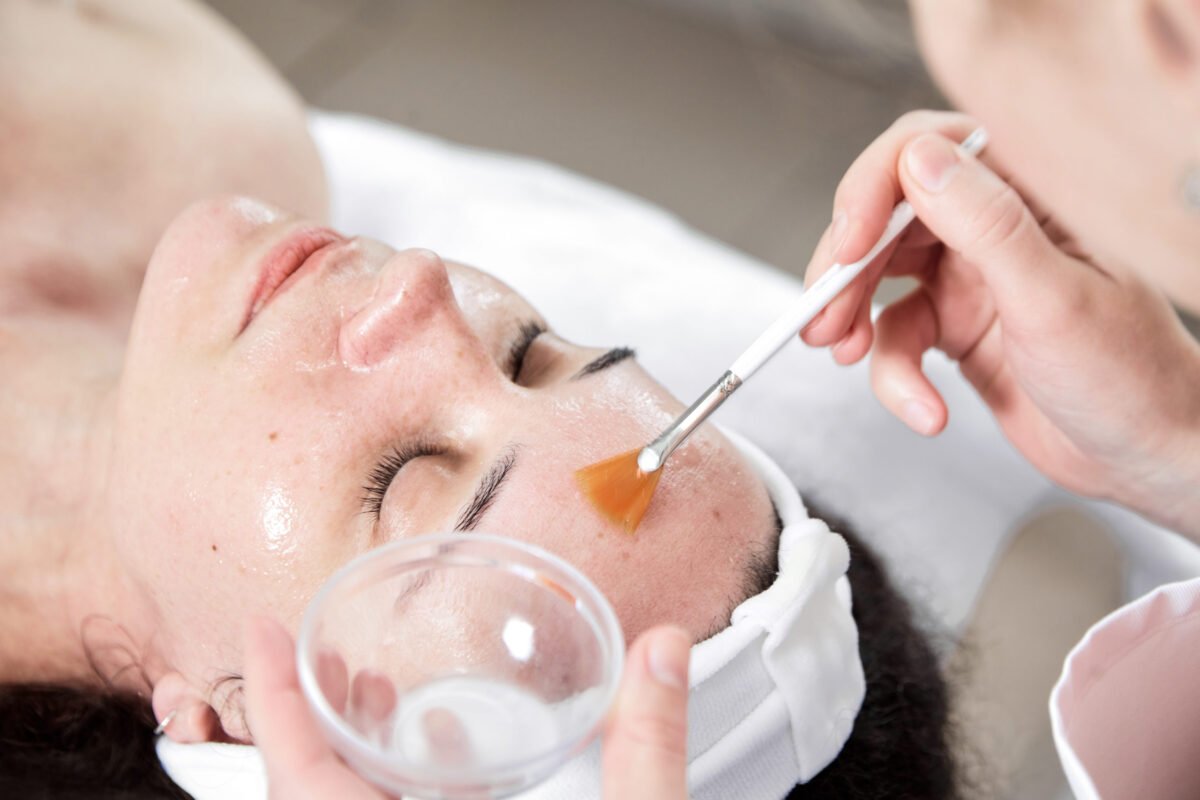
Benefits of Chemical Peels for Skin
There are several advantages that people can enjoy from chemical peel treatment, especially when they desire to enhance their skin quality. Another significant benefit is that the treatment helps significantly fade the wrinkles on the skin.
Chemical peel works by shedding the dead skin, making the wrinkles less pronounced since the peelers have rearranged the skin in the best way possible. Similarly, peels assist in the equal distribution of skin color and can be used to treat grey skin, sun spots, and melasma.
Chemical peels also decrease clogging of the pores and hence act as a remedy to acne, depositing a clear skin. In general, chemical peels improve the skin tone and make it look healthy and fresh, giving the skin a natural-looking, youthful appearance.
Types of Skin That Benefit Most from Chemical Peels
Chemical peels regarding skin types may be helpful, especially for those with oily/comedogenic skin. The ‘peeling’ process may come in handy in that it assists in removing the debris in the pore, hence minimizing the breakout and providing skin clarity.
People with sun-kissed or blotchy skin might also benefit from chemical peels since the treatment helps erase discoloration and roughness. Individuals with thin skin use the chemical peeling and who show signs of aging to make their skin look fresh.
However, people with sensitive skin and skin that lacks moisture should be careful because many peels can irritate or worsen the skin condition.
Potential Risks and Side Effects
Even though chem peels have been reported to have several advantages, they come with several risks and complications. These may include the formation of redness, swelling, and peeling formation of skin, which take up to 5-7 days to heal, depending on the intensity of the peelage.
Other serious complications include the development of keloid, pigmentary changes, infection, and others, which may be avoided, provided the operation is in the hands of a qualified dermatologist. It is essential to follow the post-treatment directions since this will help the skin to heal as it should without a hitch.
How to Maximize the Benefits
Besides the chemical peel, some practices should be followed before and after the session to enhance its effectiveness. Depending on which type of peel you will have, your practitioner may advise you to use certain products that prepare the skin for the peel and augment the peel.
After the peel, it is also necessary to nail the care of the skin and to avoid exposure to direct sunlight or UV rays, which can cause severe burning, if you have only recently stopped wearing a mask, you can prevent your skin from darkening by staying out of the sun or applying broad-spectrum sunscreen.
Also, suppose the skin is washed with mild soap and water and moisturized often. In that case, the percentage of healing will be relatively easy as the outcome of the peel will continue to last for a more extended period.
Who Should Avoid Chemical Peels?
One must understand that chemical peels are suitable for virtually any type of skin except one’s own.Chemical peels should not be performed on individuals with skin diseases such as eczema, rosacea, or other skin conditions.
Chemical peels should not be done while the woman is pregnant or breastfeeding since applying chemicals on the skin is deemed unsafe for the baby. Individuals with specific skin constraints like dermatological problems, keloids, or scars may be recommended to consult a dermatologist before they undergo the peel.
- Tags:
- chemical peel for skin









